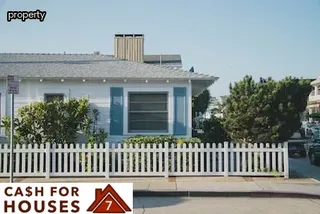In Indiana, the landlord-tenant laws and regulations provide a framework for how landlords and tenants will interact throughout the rental agreement. Generally, landlords have the right to reasonable access to the property, collect rent in a timely manner, terminate the lease early with proper notice, and make necessary repairs.
Landlords also have the right to seek action if their tenants damage property during their tenancy. However, they must follow certain procedures while doing so and can only take action if it is allowed under their rental agreement or state law.
Before taking any legal action against a tenant for property damage, landlords should consult legal counsel to ensure that they are within their rights to do so. In cases where damages do occur, landlords may be able to recover costs from the tenant's security deposit or sue them for damages if they cannot pay out of pocket.
Additionally, there may be local ordinances that give further guidance on how landlords can handle property damage caused by tenants in Indiana.

When drafting a rental agreement in Indiana, it is essential to consider the landlord's rights when tenants damage property. Landlords in Indiana are legally allowed to charge tenants for any damages caused beyond normal wear and tear, but must provide an itemized list of the damages and their costs.
Tenants should also be aware of the landlord's right to enter the rented space with proper notice if necessary - this allows landlords to inspect for damages or make repairs as needed. Landlords should also include details regarding tenant responsibility for utility payments, such as electricity or water bills - these should be clearly outlined in the agreement so that both parties are aware of who is responsible for payment.
Lastly, landlords should include information about what happens when a tenant breaches the contract or fails to pay rent; this can help protect landlords from financial losses due to nonpayment.
In Indiana, it is important for both landlords and tenants to understand their respective rights and responsibilities when it comes to damage to property that occurs during a tenancy. The landlord has the right to deduct from the tenant's security deposit for damages caused by the tenant, but must provide the tenant with an itemized statement of deductions and any remaining balance within 45 days of the tenant's move-out date.
If a landlord wishes to pursue legal action in civil court against a tenant for damages beyond what can be deducted from the security deposit, they must prove that such damages were intentional or due to negligence on the part of the tenant. Tenants, on the other hand, are responsible for keeping rental property clean and safe and may have their security deposit withheld if they fail to do so.
Additionally, if a leased property is damaged beyond normal wear and tear due to negligence or intentional destruction on behalf of a tenant, they may be held liable for damages in civil court. It is important for both parties to be aware of their rights and responsibilities in order to prevent potential disputes before they arise.

It is important for landlords to include additional clauses in their rental agreements to protect themselves and their property if tenants damage it. These clauses should cover scenarios that are not covered by Indiana law, such as who is responsible for any resulting legal fees or damages.
It should also be clear what constitutes tenant negligence or intentional damage, as well as how the landlord will respond in the event of either. Landlords should also include a clause that outlines how long tenants have to repair any damage they cause and what happens if they do not comply within the specified timeframe.
Clauses regarding security deposits should also be included in rental agreements, with clear instructions on how much of the deposit may be withheld for damages due to tenant negligence or purposeful destruction. Finally, landlords should make sure that there is a clause outlining acceptable behavior during eviction proceedings.
This can help protect them from liability if tenants become violent or destructive during this time.
In Indiana, landlords have the right to charge tenants for any damage caused to their property. However, landlords must also make reasonable accommodations to their tenants when it comes to repairs and maintenance.
This can include providing written notice of needed repairs, allowing tenants access to their units for maintenance and repair work, and notifying tenants of the availability of any repair services offered by the landlord. Landlords should also allow for a reasonable amount of time for tenants to complete requested repairs before charging them for damages or evicting them from the premises.
It is important that landlords understand these rights under Indiana law in order to protect both themselves and their tenants.

In Indiana, a landlord has the right to take legal action against tenants who damage their property. Landlords must be aware of the steps they can take when dealing with lease violations caused by tenants.
The first step for a landlord is to document all damages and provide evidence of the violation. This could include pictures, videos, or witness statements to support the claim.
Next, it’s important for landlords to review their state laws and local ordinances as well as their lease agreements in order to determine what action they can take against tenants who have violated the agreement. This could range from withholding rent payments, evicting a tenant, or even taking them to court if needed.
Additionally, landlords should consider contacting an attorney if they need help understanding their rights under Indiana law so that they can resolve any dispute quickly and efficiently.
When a tenant causes damage to property in Indiana, landlords have certain rights to ensure they are compensated for the damages. The first step is to document the damage as soon as possible.
This includes taking pictures, noting any cost or repairs needed, and contacting the tenant if necessary. Landlords can also legally withhold rent payments until repairs are made or deduct the cost of repairs from monthly rent payments.
If there is significant damage caused to the property, Indiana law allows for termination of the lease with prior written notice. Additionally, landlords can take legal action against tenants if damages exceed a certain amount or if they fail to make necessary repairs.
Finally, it is important for landlords to consult an attorney in order to better understand their rights and any alternatives available when dealing with tenant-caused damages in Indiana.

When it comes to understanding security deposits for Indiana landlords, there are a few key points to consider. Security deposits act as a buffer for landlords in the event that tenants cause property damage.
This is important because it helps protect the landlord from financial loss due to tenant negligence or malicious intent. Landlords must be aware of their rights when tenants damage property and understand the limits of liability in order to properly protect themselves and their investments.
The Indiana legislature has established some rules for security deposits that landlords must abide by, including how much can be charged, how long it needs to be held, and what actions can be taken if it is not returned as required by law. It's also essential that landlords document any damages caused by tenants in order to ensure they are able to collect on any losses incurred due to tenant misbehavior.
Understanding these laws, guidelines, and regulations will help Indiana landlords make sure they're protected in the event of tenant damage or nonpayment of rent.
When a tenant has caused damage to property in Indiana, the landlord has rights that must be respected. The first step is for the landlord to document the extent of the damage and contact their insurer if necessary.
Subsequently, the landlord must give their tenant notice of damages and provide an estimate of repair costs. Once the tenant has been notified, they should be given a reasonable amount of time to pay for those repairs.
If payment is not received by then, landlords can begin implementing collection protocols for unpaid rent. This may include issuing late notices, filing a court claim or imposing other legal action such as wage garnishment or liens on personal property.
To ensure that any unpaid rent is collected in full, it is important for landlords to remain firm but fair when dealing with tenants who have damaged property and failed to pay associated costs.

When it comes to a landlord's rights when tenants damage property in Indiana, pursuing damages for breach of contract is an important legal right that should be taken seriously. Under the Indiana Landlord Tenant Act, landlords are allowed to pursue damages for tenant misconduct if certain conditions are met.
For example, if the tenant has damaged or destroyed any property beyond normal wear and tear or has violated other terms of their lease agreement, the landlord can take action against them. The landlord must also consider the amount of time they have to file a claim and how much money they are likely to receive if they win their case.
It is important to understand all of these factors before deciding whether or not to pursue damages for a breach of contract. Furthermore, landlords should research applicable laws and regulations in their state so they know what their rights are when pursuing damages related to tenant misconduct.
Ultimately, understanding the legal process and knowing your rights as a landlord can be key in ensuring you receive the compensation you deserve if a tenant breaches their contract with you.
In Indiana, a landlord has the right to terminate a lease agreement if tenants damage the property. The first step is to send the tenant a written notice of the damages, including photos or other evidence if applicable.
This notice should include a timeline for repairing the damage, as well as an explanation of what will happen if it is not addressed. If the tenant fails to repair the damage within the given time period, then Indiana law allows landlords to file an eviction lawsuit against them and issue an order for their removal from the property.
The landlord can also pursue monetary damages from the tenant in court, such as reimbursement for repairs or lost rent due to vacancy caused by the tenant's negligence. An experienced attorney can help landlords navigate this process and successfully protect their rights when tenants damage property in Indiana.

In Indiana, landlords have the right to take action when tenants break their lease early. If a tenant has done so without prior written notice and without paying any outstanding debts or fees owed, the landlord is allowed to pursue legal action.
This could include filing an eviction lawsuit against the tenant or trying to recover damages for losses incurred. If the landlord chooses to sue for eviction, they must file a summons and complaint in the court of jurisdiction.
Additionally, the landlord may be able to seek compensation for unpaid rent and other costs associated with replacing any damaged property, as well as any applicable late fees or attorney's fees. Ultimately, it is important for landlords in Indiana to understand their rights when tenants break leases early and take appropriate action in order to ensure that their rights are protected.
In Indiana, eviction processes and procedures are governed by the Tenant Remedies Statute. This statute outlines a landlord's rights when tenants damage property, as well as their ability to evict tenants who have violated their rental agreement.
Landlords must provide written notice of eviction that includes a list of damages and the amount of money owed for repair or replacement of the damaged items. If payment is not made within 30 days, landlords may file an eviction lawsuit with their county court system in order to proceed with the legal process.
The court will then review all evidence presented and determine whether or not an eviction should occur. If the court finds that the tenant has caused property damage, they may grant permission for eviction.
However, if the tenant pays for damages within 14 days after being notified, they can avoid an eviction altogether. Depending on the severity of damage caused by tenants, landlords may also be able to pursue other legal remedies such as collections actions or small claims court proceedings.

In Indiana, the landlord-tenant relationship is governed by specific legal requirements. However, a lack of knowledge about these laws can lead to mistakes by both parties.
Common errors made by landlords include failing to provide proper notice to tenants before entering their property and failing to maintain the unit according to the state's standards. Tenants, on the other hand, may make mistakes when it comes to paying rent or damaging property.
When tenants damage property, landlords have certain rights such as filing a lawsuit for damages or evicting the tenant with proper notice. It is important for both landlords and tenants in Indiana to understand their rights and obligations under the law so that they can avoid common mistakes in the landlord-tenant relationship.
In Indiana, landlords are allowed to retain certain rights when tenants damage the property. The state has implemented legislation which allows landlords to charge tenants for repairs if it is proven that the damage was a direct result of tenant negligence.
Landlords can also make deductions from security deposits when tenants fail to pay rent or cause damage to the property. Additionally, Indiana has recently passed a law requiring landlords to provide written notice before entering a rented dwelling, unless it is an emergency situation.
Furthermore, in cases where a tenant fails to fulfill their contract obligations, the landlord is able to take legal action and seek compensation for any damages incurred. It is important for both landlords and tenants to be aware of their rights under Indiana law in order to ensure proper protection of their interests.

As a landlord in Indiana, it's important to be aware of your rights when tenants damage property. Protecting your investment is key, so here are some tips for safeguarding your rental property.
First, ensure that you have a written agreement with the tenant that outlines their responsibilities and explicitly states that any damages caused by the tenant must be repaired or paid for by them. Additionally, create a clear policy on how and when damages should be reported, as well as the process for repairing them.
You should also conduct regular inspections of the property to identify any existing or potential issues before they cause more costly damages down the line. Finally, document all repairs in writing and keep copies of all relevant records related to tenant damage.
By taking these steps, you can protect yourself financially while ensuring your rental property remains safe and secure.
Many landlords in Indiana have questions about their rights when tenants damage property. To help, free downloadable guides are available to provide landlords with key information on the state’s landlord-tenant laws.
These guides can be used to learn more about topics such as tenant and landlord responsibilities, evictions, security deposits, and dealing with property damage. The guides also provide useful advice on how to handle disputes that may arise between a landlord and tenant in order to ensure both parties are protected under the law.
With these helpful resources at hand, landlords can be sure they have all the necessary information needed to protect their investments and rental income in Indiana.

In Indiana, landlords have the right to seek monetary compensation from tenants when their property is damaged. However, there are several procedures landlords can use to settle disputes with their tenants without taking legal action.
One of the most common methods is through mediation services, which provide a neutral third-party to facilitate communication between landlord and tenant while helping them reach a mutually beneficial agreement. Other options available to landlords include negotiation between both parties, arbitration where a neutral third-party makes a ruling on the dispute, or small claims court for cases with damages of up to $6,000.
No matter the method used, it’s important for landlords to be familiar with their rights in order to ensure they are treated fairly and receive appropriate compensation for any damage that has been done.
When landlords and tenants in Indiana are dealing with issues related to real estate, such as damage to property, it is important for both parties to understand the legal rights and responsibilities of each. Landlords have certain rights when a tenant damages property, but they may need to seek legal representation in order to protect their interests.
Before hiring an attorney, landlords should research the qualifications and experience of the lawyer to ensure they are knowledgeable about real estate laws in Indiana. Additionally, landlords should also inquire about the cost of services and any additional fees prior to signing a contract.
It is essential for landlords to select a lawyer who is familiar with landlord-tenant laws in Indiana so that they will be able to provide sound advice on how best to proceed with any claims against tenants that may arise from property damage.

In Indiana, a landlord is allowed to evict a tenant for damaging property. When this occurs, the tenant may be entitled to certain rights regarding any abandoned property left behind.
The landlord has the right to store or dispose of any personal property left behind by the tenant during the eviction process. However, before disposing of any items, the landlord must give written notice to the tenant with a detailed list of all possessions that are being stored or disposed of.
Furthermore, landlords are required to store such items for at least thirty days after giving written notice in order for tenants to reclaim their possessions. Additionally, landlords must provide an itemized statement detailing how much was spent on storing and disposing of the items before they can charge the tenant for such costs.
Finally, if a tenant does reclaim their abandoned property within the allotted time frame, the landlord must return it in its original condition with no additional fees or charges imposed upon them.
In Indiana, landlords have the right to pursue damages from a tenant in the event that property is damaged. Depending on the severity of damage, this can include deducting compensation from the security deposit, or pursuing legal action against the tenant.
The length of time a landlord has to charge for damages in Indiana depends on the type of damage and whether or not it is addressed in the rental agreement. Generally speaking, Indiana landlords have up to two years to file suit for damages caused by their tenants.
Tenants should be aware that if they are found responsible for damaging property, they may be liable for all costs associated with repairing or replacing said property. Additionally, tenants may be required to pay any legal fees incurred by their landlord if they do not adequately cover the cost of repairs.

In Indiana, a landlord cannot take matters into their own hands when it comes to tenants damaging property. Landlords are not allowed to make unauthorized repairs to the rental unit, or withhold a tenant’s security deposit without proper documentation and/or evidence of damages.
Landlords also cannot enter a rental unit without the tenant's permission, unless there is an emergency or unless otherwise provided for by law. In addition, landlords cannot increase rent in retaliation for a tenant complaining about conditions of the rental property, or threaten eviction when a tenant raises concerns about their rights as a renter.
Lastly, landlords are not allowed to evict tenants in an attempt to force them out of the rental unit if they have done nothing wrong.
Indiana Code 32 31 3 13 is the law that outlines a landlord's rights when tenants damage property in Indiana. This code states that a landlord has the right to pursue legal action against tenants who cause intentional or negligent damage to their rental property.
It also allows landlords to collect from the tenant any costs incurred for repairs or replacement of damaged property, as well as additional damages, court costs and attorney fees. This code also gives landlords the right to terminate a tenancy for those tenants who are found guilty of causing intentional or negligent damage.
Lastly, it allows landlords to pursue civil remedies such as an injunction or specific performance when necessary. In sum, Indiana Code 32 31 3 13 provides an important set of protections for landlords when tenants cause damage to rental property in Indiana.
Indiana Code 32-31-5-4 pertains to a landlord's rights when tenants damage property in the state of Indiana. Specifically, it states that the landlord is entitled to take legal action against their tenant if they cause damage that exceeds normal wear and tear.
This includes damages caused intentionally or as a result of negligence on behalf of the tenant. Furthermore, landlords may charge tenants for any costs associated with repairing the damage, including labor and materials.
When there is a disagreement between tenant and landlord as to who caused the damage or how much should be charged for repairs, Indiana Code 32-31-5-4 states that either party may pursue arbitration or other forms of alternative dispute resolution. Ultimately, this law serves to protect landlords from irresponsible tenants who may cause unintentional or malicious damage to property under their care.